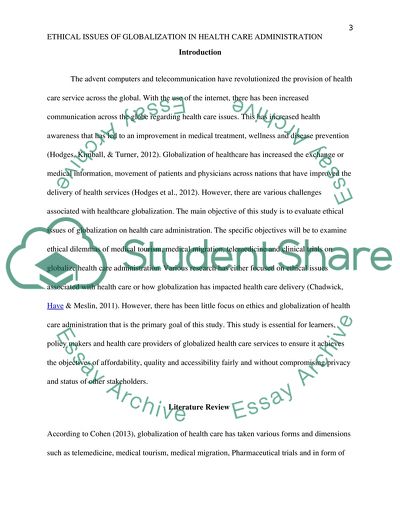Cite this document
(Ethical Issues of Globalization in Health Care Administration Research Paper Example | Topics and Well Written Essays - 2250 words, n.d.)
Ethical Issues of Globalization in Health Care Administration Research Paper Example | Topics and Well Written Essays - 2250 words. https://studentshare.org/ethics/1878473-health-care-administration-research-paper-technology-ethic-and-society
Ethical Issues of Globalization in Health Care Administration Research Paper Example | Topics and Well Written Essays - 2250 words. https://studentshare.org/ethics/1878473-health-care-administration-research-paper-technology-ethic-and-society
(Ethical Issues of Globalization in Health Care Administration Research Paper Example | Topics and Well Written Essays - 2250 Words)
Ethical Issues of Globalization in Health Care Administration Research Paper Example | Topics and Well Written Essays - 2250 Words. https://studentshare.org/ethics/1878473-health-care-administration-research-paper-technology-ethic-and-society.
Ethical Issues of Globalization in Health Care Administration Research Paper Example | Topics and Well Written Essays - 2250 Words. https://studentshare.org/ethics/1878473-health-care-administration-research-paper-technology-ethic-and-society.
“Ethical Issues of Globalization in Health Care Administration Research Paper Example | Topics and Well Written Essays - 2250 Words”. https://studentshare.org/ethics/1878473-health-care-administration-research-paper-technology-ethic-and-society.


